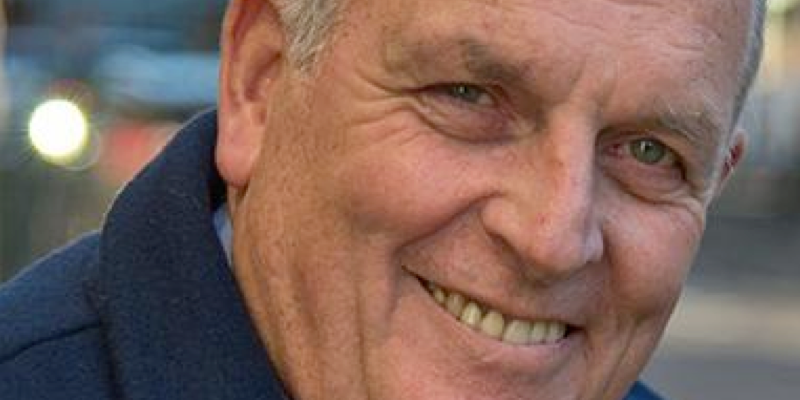
Love Sport Radio owner Kelvin MacKenzie is calling for changes to the way Arqiva does business, saying the monopoly business needs to be broken up or regulated.
He writes:
“I am grateful to the commercial stations serving the Asian community (RadioToday) for taking up the battle cry to have their huge and unjustifiable transmission costs waived during the virus crisis.
But I would like to go one further. When finally this financial nightmare is over it will be time for the pricing policy of the national digital monopolist Arqiva (it owns 100% of the Digital One multiplex, 40% of Sound Digital Limited and 45% of all local multiplexes) is bought under regulatory control.
While negotiating last summer with Arqiva to have carriage on the multiplex SDL I decided to have a look at the SDL accounts and a remarkable document it is too.
It showed that each of the shareholders (Wireless has 30%, Bauer 30%) would pay themselves £3K per kilobit. Since Wireless and Bauer use all their capacity for their own stations themselves (did Ofcom know this when they granted them the license?) only Arqiva would sell into the open market.
Along I come with my Love Sport hat on and start negotiating with Arqiva. And this is how it works.
I only needed 24kbps for my station but they tell me I can forget about the £7,875 per kbps paid by Panjab (I bought it from owner Surjit) which in itself was a whopping 162% rise on their wholesale cost. Instead could I please cough up £12,375 per kbps a massive and unjustifiable 413% uplift.
What could I do? There is nowhere else to go. Arqiva owns it all. They also own all the masts businesses. Yes 100%.
But at least the masts are reasonably tightly regulated basically being allowed to earn around a 7% profit.
And that is what should be applied to the national multiplex businesses until there is proper competition in the market.
Where a local mux is in a dominant local position financial regulation should apply there. Thinking of Birmingham and Manchester in particular but there will be better examples of which I know not.
So I have gone to the Competition and Markets Authority (CMA) plus Ofcom to break up the Arqiva monopoly. Due to COVID-19 everything has been put on hold but I am confident they will take up the complaint and regulate Arqiva’s pricing before the year-end.
Arqiva is owned by Macquarie, a massive Australian infrastructure bank and I imagine they will put up a big fight.
They are making a fortune out of this monopoly but as Rupert Murdoch once told me “Monopolies are terrible things unless you happen to own one”.
And Arqiva does own one. And it should either be broken up or regulated.”
In response to the above, Arqiva says:
“We are disappointed that Mr MacKenzie has again felt it necessary to break commercial confidentiality in pursuit of a grievance.
We noted his previous article in RadioToday and the report in the Telegraph in February which we strongly dispute.
To this point we have chosen to preserve and respect the confidential nature of our conversations with our customers. However, this fresh criticism warrants some clarification.
Regarding the cost of capacity on SDL, as a Sound Digital shareholder, Arqiva always abides by its obligations, set out by Ofcom, to promote fairness and competition in the way radio capacity is allocated and contracted. In the market for digital national capacity, the auctioning of capacity is a well-established way of determining the outcome in both the radio and TV markets. It’s also worth noting that Arqiva and the other shareholders in Sound Digital have taken the risk on rolling out a second national multiplex and invested millions in the enterprise and the transmitter network to make more stations available to more listeners than ever. Thankfully demand for capacity on the multiplex has been strong, and pricing for capacity has been determined by the market.
To illustrate this point about demand, we received a speculative unsolicited offer from Love Sport for capacity on SDL over 12 months ago. They were not forced into making this offer, they decided to make it at a price they felt was appropriate for them. Unfortunately, at the time the multiplex was full and no capacity was available – we were not running an auction at the time.
The price they offered then is the same as the price we agreed when Love Sport launched at the end of last year. Furthermore, we have subsequently received offers for newly available capacity at rates higher than Love Sport is paying.
In respect of the allegations made by Mr MacKenzie about our agreement with Love Sport, it is important to note that the initial rate agreed with Panjab Radio prior to the launch of the Sound Digital multiplex was determined in direct negotiations with them and reflected both demand for capacity and their specific circumstances at the time. As per the standard terms and conditions for Arqiva’s Sound Digital capacity, their contract contained a clause that allowed for a pricing review in the event Panjab Radio was sold. We exercised our right to review the price to the level that Mr MacKenzie himself had valued it at a few months before.
Overall, we simply do not recognise the grievances Mr MacKenzie continues to raise.”
Something on your mind? Email newsdesk@tmssvr.co.uk with opinion piece ideas for RadioToday.
Posted on Tuesday, April 21st, 2020 at 10:50 am by Guest

